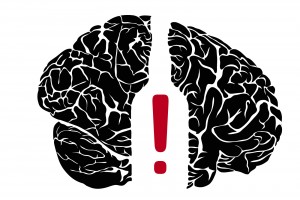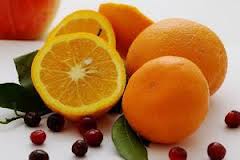We are all aging, and as we do we are gradually losing energy until we reach our last breath. Here I like to review where our energy comes from and what we can do to preserve our energy. When we preserve our energy we are in fact also slowing down the aging process and this in essence is the approach to anti-aging.
Mitochondria are power packs of energy
Each of our body cells has many mitochondria to give us energy. Some organs are more demanding. They are the main players in our body like the brain, the heart, the liver or the kidneys. Their cells have thousands of these energy packages. Without the mitochondria there would be no energy available to these key organs to perform all the work they do. They allow us to think and produce brain hormones, to contract our heart muscle and pump the blood through our arteries. They are organs like the liver that are in charge of all of the major metabolic reactions or the kidneys that filter our blood for impurities and eliminate them in urine. Mitochondria can be likened to our power bundles that give our organs and us energy to get through life.
Get enough sleep
Sleep is an energy rebuilder. But it has to be deep enough and long enough, and there has to be enough REM sleep to give us the feeling that we had a refreshing sleep. As we age some of our hormone production slows down. One of those substances is melatonin. It is crucial for good and restful sleep. If our body is not producing enough, we can supplement with small dosages like 3 mg orally to help our body to initiate sleep. It is not an addictive substance. It is the body’s own hormone. Should you wake up later in the night, you could take another 3 mg of melatonin. There is no risk either to feel tired or “hung over” after taking melatonin.
Exercise regularly
The cheapest energy you can get is by exercising regularly. When you exercise on a treadmill, go jogging or go for a brisk walk you condition your heart, improve your lungs; in short you develop cardiovascular fitness. At the same time your muscles are strengthened with isometric exercises. You are optimizing your energy flow. In the process of exercising you create a stimulus for your mitochondria to multiply in the affected tissues. This applies as much to your muscles as it does to your heart and to your lungs. You will find that your muscle strength increases. With exercise you spend energy, but you feel more energetic from it because your body is being tuned up.
Manage stress
Self-hypnosis is a simple way to allow your whole body to relax. However, the various forms of yoga will do the same thing for you. Meditation is another way of finding peace and tranquility. All of these methods will re-energize you. They calm your brain, help you to cope with stress and rebalance your hormones at the same time.
Lifestyle
You need a lifestyle that is conducive to keeping your energies. Listed here are several factors that interfere with energy production.
- Smoking: If you smoke, you burn up energy with every cigarette you consume. You interfere with the oxygen transport through your lungs, but the chemicals that poison your system also poison the mitochondria of the cells. By smoking you are destroying your power packs. Pollution damages your lungs in a similar fashion as smoking does, but it is a slower process. There are a number of big cities with severe air pollution and they may not be worthwhile visiting.
- Sugar and starchy foods: Back in the 1970’s based on the Framingham Heart Study it was thought that hardening of arteries would be due to an accumulation of cholesterol from fat in the diet. Saturated fatty acids were accused to be the culprit. A low fat diet was supposed to be the solution. But the end result was the obesity and diabetes wave that we still see now. There had to be another explanation of where hardening of the arteries came from. Banning fats did not lead to better statistics. The new observation was that a low carb/medium fat diet was associated with low heart attack rates, low stroke rates, and even low cancer rates. Researchers also found the real culprit: They are sugar, starchy foods and processed foods. Sugar and starchy foods are metabolized in the liver into LDL cholesterol, triglycerides and they also oxidize LDL cholesterol. This starts a vicious process of inflammation of the lining of the arteries with fat deposits into the wall of the arteries. By eating the wrong foods we interfere with our body chemistry to the point where free radicals are produced that attack everything in us including our mitochondria. I have blogged about this many times before. You can read about it here.
- Alcohol: the famous one glass of red wine for women and two glasses of red wine for men is supposedly keeping us younger for longer. This is true for the resveratrol in the red wine, which is a powerful antioxidant. But to say that alcohol itself would prolong your life is a white lie. Alcohol is a nerve and cell poison; it robs you of energy. I take the resveratrol as a supplement from the health food store to protect my system. I stay away from alcohol.
Keep the arteries open
We need healthy arteries to pump blood through all of the branches and deliver oxygen and nutrients to the body cells. Unfortunately, as we age our arteries tend to get deposits that make them more narrow, and this could also raise our blood pressure. The end result is that less nutrients and oxygen will reach our body cells. We perceive that something is wrong by not feeling as energetic as usual. Simple lifestyle changes as mentioned below can improve our circulation and lower our blood pressure. Chelation therapy has also been shown as helpful in the TACT study.
Get rid of inflammation
Dr. Paul Ridker found that approximately 50% of patients with heart attacks had a normal cholesterol level. He was looking for a more meaningful screening test and found it in the C-reactive protein. If the test result was higher than 3 there was a high probability that there was inflammation somewhere in the body, but a test result of less than 1 was normal. In the meantime scientists have learnt that the C-reactive protein is a very sensitive tool to measure inflammation in the body, but it is not specific for heart attacks. It is also positive in people with arthritis, cancer, and autoimmune diseases. Chronic inflammation is also destroying immune cells: this explains the development of cancer as the end stage of chronic inflammation.
Chronic inflammation robs you of energy. We can do a lot with natural anti-inflammatory supplements to quench inflammation.
Preserve your immune system
We can strengthen our immune system by exercise, taking vitamin C regularly and by taking vitamin D3 supplements to just name a few. DHEA, the precursor hormone from the adrenal gland also helps stimulate the immune system.
Balance your hormones
As we age we loose hormones one by one. With melatonin this starts happening after the age of 20, with DHEA and growth hormone after you are in your mid thirties. Women start to get into menopause at the age of 45 to 55, but this can occur earlier or later. Men are going through their hormone change (andropause) at the age of 55 to 60. Both, women and men know when they are entering their hormone change because of a lack of energy and a few other unpleasant symptoms. Women get hot flashes. Men get grumpy, have erectile dysfunction, a lack of sex drive, week muscles and slower thinking. If you feel those symptoms, seek the help of a naturopath who is knowledgeable on bioidentical hormone replacement. Chances are that your regular doctor will want to prescribe synthetic hormones unless you can find an anti-aging physician. If your blood tests show deficiencies in the sex hormones, you will need to get a bioidentical hormone prescription. They are usually dispensed as creams, which you apply to your chest wall or non-hairy forearms in the morning. After 4 weeks your energy will be back, and your body will function normally again. All the body functions that you thought were gone forever just needed that extra stimulus from the missing bioidentical hormones.
Organic, GMO free food
I was tempted to just write “good food”. But this may be confusing to people. It is difficult anywhere in the world to get good food. Often insecticides and pesticides contaminate fruit and vegetables, which function as xenoestrogens blocking hormonal receptors. These residues are toxic for your body, and they are destructive to your energy. Organic food with the USDA certification or any independent certification is the best way to ensure that you get a good food product. I take this seriously and pay the extra dollar. We do not need plates heaped with foods. Small helpings of good quality foods are more important for our well-being.
Treat depression and mental disease
People who are depressed will complain of a lack of energy. Their brain circuits are constantly in overdrive being busy with negative thinking. Cognitive therapy can help depressed patients to face their negative emotions. It is a learning process of thinking step by step to distinguish what is real and what is magic thinking. It is important to seek qualified help. Depressed patients distort the way they think, but cognitive therapy sets their thinking straight (Ref.1). When the thinking is normalizing, the drained energy returns, people sleep better again and they can use the energy to move forward.
Positive thinking
Negative thoughts are draining you of energy. You want to stay optimistic within what’s reasonable. Be thankful for all the good things in your life. Minimize what’s negative, but think about positive solutions to get rid of energy draining parts in your days. Do this persistently until it becomes part of your life and you will have extra energy that you didn’t waste in negative thinking or by getting caught up in needless anxiety. Worrying does not get us anywhere, but it depletes our energy.
What can we do to prevent aging?
It follows from all that I said that anything that preserves energy would also prevent premature aging.
As mentioned, it is important to exercise regularly (gym, swimming, dancing, fast walking, jogging etc.). Have good, balanced nutrition, preferably organic food. Some supplements are also helpful: resveratrol, Co-Q-10; pages 100 to 103 of my book contain more vitamins and supplements (Ref.2). Here is a link to my website NetHealthBook, which also addresses vitamins and supplements (scroll down to table). Avoid sugar and starchy foods to avoid oxidizing LDL cholesterol. Use bioidentical hormones to replace what is missing. Get your 7 to 8 hours of sleep and don’t forget relaxation. Detoxify to get rid of toxins that would slow you down. Infrared saunas are one way to detoxify. It is helpful to consider chelation treatments. Last but not least have a positive outlook on life.
Conclusion
Our energy that we feel tells us whether we are staying healthy or whether we are at the verge of getting sick. It is best to maintain your energy at all times by doing a combination of things outlined above. You will retain youthful energy; you prevent cardiovascular disease, Alzheimer’s and even cancer. Most of all you have the energy to do the things you want and love to do.
I prefer to work on staying well and in the process I have the energy to do the things I want to do. Part of it is blogging, part of it is writing books, and part of it is dancing. The key is that I like what I am doing. I invite you to do what will keep you energized. Listen to your body.
References:
1. David D. Burns, MD: “feeling good – the new mood therapy” 1999, Harper Collins.
2. Dr. Schilling’s book, March 2014, Amazon.com:“A Survivor’s Guide To Successful Aging: With recipes for 1 week provided by Christina Schilling”










